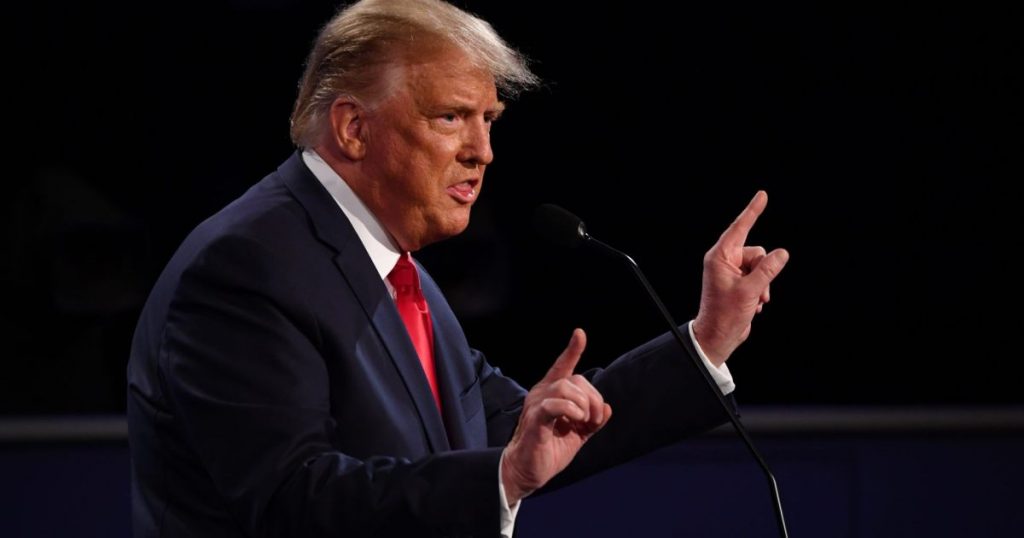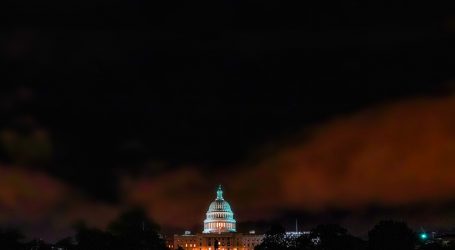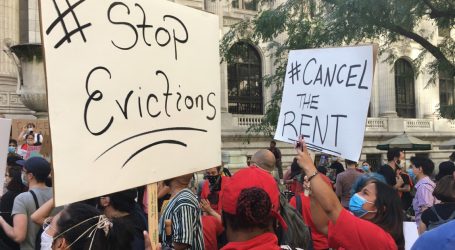The Republican Party Plans to Boycott Presidential Debates
Donald Trump speaks during the final 2020 presidential debate. Kevin Dietsch/CNP/ZUMA
Fight disinformation. Get a daily recap of the facts that matter. Sign up for the free Mother Jones newsletter.The Republican National Committee has indicated that it will pursue a rule change requiring candidates seeking the GOP presidential nomination to promise that they would refuse to take part in any general election debates sponsored by the nonpartisan, nonprofit commission that has hosted them since the 1980s, the New York Times reported Thursday.
“The party and its voters have lost faith in your organization,” wrote RNC Chairperson Ronna McDaniel in a letter to the Commission on Presidential Debates. She further added that the supposedly “partisan” actions of the group “have damaged the RNC’s faith that the CPD can provide a fair and impartial forum for presidential debates.”
The RNC will vote to confirm the rules change at a meeting in February. If passed, it would obligate contenders for the GOP nomination to sign a pledge not to participate in any debates sponsored by the commission.
Republicans have criticized the commission since at least 2012, when moderator Candy Crowley of CNN fact-checked Republican nominee Mitt Romney after he falsely asserted that his opponent, Barack Obama, had refrained from referring to the Benghazi attack as an “act of terror” for two weeks. Republican objections became more vocal in 2016 and 2020, when Donald Trump repeatedly criticized the commission for allegedly favoring Democrats and railed against its chosen moderators, such as then-Fox News anchor Chris Wallace and the NBC News reporter Kristen Welker, who he insisted were biased against him.
McDaniel proposed a slate of potential reforms to the debate process and asked the commission for “transparent criteria for selecting debate moderators that would disqualify individuals from consideration who have apparent conflicts of interest due to personal, professional, or partisan factors.” However, in her letter, she alleged that the commission’s responses seemed “designed to delay any reform until it is too late to matter for the 2024 election.”
In response to McDaniel’s accusations, the commission released a public statement saying that it has traditionally dealt directly with candidates for vice president and president, rather than with their political parties.
“The CPD’s plans for 2024 will be based on fairness, neutrality and a firm commitment to help the American public learn about the candidates and the issues,” the statement reads.
It’s not clear how the change will shake up the debate stage, but it could return the planning process to the status quo before 1987, with Democratic and Republican campaigns negotiating directly to set terms—if the debates happen at all.





